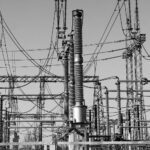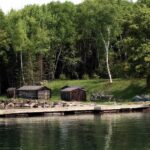Article by Brandon Smith from Alt-Market written exclusively for Prepper All-Naturals.
One of the most common assumptions I come across in the survival-sphere is the idea that the next world war would automatically necessitate global nuclear conflict. In other words, a lot of people assume we aren’t in a world war until the nukes start flying. This is a dangerous misunderstanding for a lot of reasons. What they are overlooking is the fact that we are ALREADY in the middle of WWIII. These people don’t realize it because they’ve based their entire image of world war on Hollywood fantasy.
There are many ways in which wars are fought. In our current situation WWIII is being fought through proxies like Ukraine and Israel (and maybe Taiwan in the near future). The war is also being fought on the global economic stage through sanctions, inflation and the dumping of the US dollar as the world reserve. To be sure, these situations can easily escalate into something bigger and that is exactly what I suspect they will do. However, planetary nuclear war is the least likely scenario.
Survival and preparedness communities have a tendency to hyper-focus on the obviously Apocalyptic. We talk a lot about EMP strikes and split-second grid down calamities. We talk about solar flares, overnight economic crashes and nuclear holocaust. I think survivalists do this because it acts as a mental exercise – A way to better clarify what the best preparedness solutions are. But as I’ve said for many years, collapse is a process, not an event.
These things happen slowly, and then all at once. If you went back in time ten years ago and warned people that in 2024 the US would be in the middle of a stagflationary crisis with a 30%-50% average price increase on all necessities, they would probably dismiss you as a doom-monger. Well, guess what, that’s exactly what a handful of alternative economists (myself included) were doing well over a decade ago. And we WERE dismissed over and over again. Welcome to our world.
The reason people refused to believe us is because the danger was not immediately obvious. The economic threat was not hitting them in their wallet yet. Stock markets seemed to be doing fine. The jobs market was still functioning somewhat normally. They could only view economic crisis through the lens of a total collapse. The idea that it would happen incrementally never crossed their minds.
Even today there are still people who argue that everything is fine. The stock market is “fine.” The labor market is “healthy.” If you suggest all is not well, you’re a “chicken little.” This is the incredible danger of having a Hollywood fantasy idea of what a collapse looks like. We may never get to 100% systemic implosion; but an 80% collapse is still a survival situation.
The same dynamic goes for WWIII. We must not overlook the dangers right in front of us simply because intercontinental ballistic missiles aren’t crisscrossing the sky.
Consider for a moment the possibility that world war will be fought between major powers on proxy battlegrounds. The weapons of mass destruction will be financial instead of nuclear. The conflicts will go on for a decade or longer in various parts of the world, all adding up to a world war, but maybe never officially declared a world war. Perhaps there is a nuclear event somewhere; maybe a false flag or a limited strike. It still doesn’t mean global strikes are an inevitability.
I’m bringing up this topic because it’s important preppers don’t get stuck the psychological trap of defining a collapse event with such strict parameters. People also need to understand that the powers-that-be also have a lot to risk should a war devolve into nuclear exchange. If it was really that easy for them to launch warheads, wipe out the majority of the human population and then establish a global dynasty, they would have done it already.
Global war on such a scale is inherently unpredictable. The elites have spent trillions of dollars and the better part of the last century constructing the most complex surveillance and control grid in history. It would be foolish to turn it all to ash in the blink of an eye and I highly doubt that’s the plan. They would be putting themselves and their legacy at risk of being erased forever.
Does this mean I will be ignoring the potential for a nuclear event? No. I will always keep it in mind and have preps ready just in case. A single nuke set off anywhere west of your home could result in radioactive fallout that would take around three weeks to dissipate. And, these events are indeed survivable.
Here’s an interesting fact to ponder: The US government has tested at least 1050 explosive nuclear devices over the decades. Around 216 of those were atmospheric tests that resulted in massive fallout across the country. Some people in close proximity got sick over time from these tests, but they didn’t result in an overnight mass death event in the Midwest.
Perhaps, at a moderate distance, these weapons are not as dangerous as we’re led to believe?
The real threat from nuclear weapons comes from the initial blast and the resulting damage to national infrastructure. The economic system would also take an immediate dive from even one strike, and it could be anywhere in the world. A single nuke in Ukraine would send shockwaves through already unstable markets. If the globalists wanted to accelerate a worldwide collapse, they wouldn’t need a nuclear war, just one well placed device.
There is a lot of misinformation on the web surrounding nuclear disaster, but the preparations for radioactivity are relatively simple: Store enough sealed food and clean drinking water for at least three weeks. Have enough potassium iodide pills on hand for a daily dose for each member of your family. Buy a digital Geiger counter and a radioactive test card to make sure the device works. If you think fallout is a danger then seal up windows and doors with plastic. Avoid going outside if you can and put as many physical barriers between you and the fallout as possible (basements are best).
The average half-life of nuclear fallout is 2-3 weeks.
Water doesn’t actually become irradiated; the dust from an attack is what ends up in open sources and makes you sick, so you certainly don’t want to ingest it. The dust has to settle in these water sources and the radiation has to be given time to dissipate. Clean water will be at a premium for at least a month after the event. The more clean water you have the more likely you will be to get through the crisis without physical effects. Rain water will be safe after the first two weeks.
The biggest danger from WWIII is not nuclear exchange (as unlikely as it is), but the disturbing changes societies go through when the conflict expands. Totalitarianism is much easier to institute during war. Freedom of speech is often suppressed and criticism of the government is often criminalized. People who rebel against this are accused of “working with the enemy.” Military conscription is usually enforced and young people are sent off to die overseas over a conflagration that makes little sense.
The economy nose dives and the supply chain tightens. Price controls and rationing are initiated. Black markets flourish but those who participate are aggressively targeted by the government. In the case of the US, armed revolution in some states is a certainty.
Our planning should focus far more on these eventualities and less on the idea of nuclear Apocalypse.























Leave a Reply